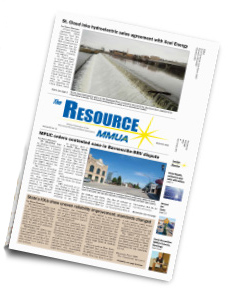
- SINCE 1931
- Cart 0
- Log In
Why Create an Account?
Access members-only information including complete utility directory, salary surveys, discussion forums, legislative updates and more.
Create an Account- Classifieds
- Forum
New Distributed Generation Rules Coming from MPUC
New Distributed Generation Rules Coming from MPUC
January 6, 2017
Municipal electric utilities will want to pay close attention to a regulatory work group established Jan. 5 by the Minnesota Public Utilities Commission (MPUC).
The newly-established Distributed Generation Work Group (DGWG) has been tasked with several items over a staggered time frame, stretching out, possibly, to approximately two years. Whatever comes from the group will impact every utility in the state.
Over the course of the next year or two, the work group is tasked with transitioning the current Minnesota model interconnection process to one based on two Federal Energy Regulatory Commission (FERC) standards (more on those later).
The MPUC’s Executive Secretary will convene the DGWG with assistance from the Minnesota Department of Commerce, Division of Energy Resources and appoint its members. The ranks of the workgroup members will almost certainly include representatives of various groups. And while there is significant agreement between the various groups on certain aspects of the issue, there are also significant differences.
MMUA’s Bill Black testified at the Thursday hearing that the municipal utilities would like a seat on that work group to ensure that the end product can be scaled to work for municipal utilities. The commissioners seemed appreciative of that offer, and a representative of the DER repeated that sentiment in a conversation after the hearing saying a municipal technical perspective would be very helpful. In fact, the DER testified that it lacks the engineering staff to make recommendations to the MPUC from such a work group, but the commission saved that issue to be discussed another day.
The state’s existing statutes regarding Interconnection of On-site Distributed Generation were enacted in 2001 and required the MPUC to develop interconnection processes and technical standards. An order adopting those protocols was issued by the MPUC in 2004. Municipal and cooperative utilities were required by the 2001 law to adopt processes and standards consistent with the commission’s order within 90 days of the 2004 order. Over the last decade, MPUC staff noted in briefing papers, “much has changed in the distributed generation and interconnection realm . . .”
As a result, two different entities, from very different perspectives, filed proposals requesting the MPUC update the standards.
The Environmental Law and Policy Center, Fresh Energy and the Interstate Renewable Energy Council joined together to file a motion to re-open and amend the standards. They suggested the new procedures and interconnection agreement be modeled in part on FERC’s 2006 Small Generator Interconnection Procedures (SGIP) and Agreement (SGIA). They suggested modifying these documents “to reflect their research into regional and national best practices and national standards” and submitted a version they called the new Minnesota Interconnection Protocol (MIP).
A second proposal, filed four days later (on May 16, 2016), came from Dakota Electric Association (DEA), in conjunction with a group of other Minnesota utilities. This filing requested incremental changes to the state’s standards.
The MPUC opened a docket, and 32 entities filed comments. The MPUC convened a meeting in September to review and discuss the comments. About 50 participants attended. A panel that included Black was assembled from the group to discuss which proposal to use as a starting point.
There was general agreement that the 2004 standards need to be updated, and that the MPUC should provide guidance. However, the panel produced no clear answer as to whether to update the current Minnesota model as DEA proposed or start with the SGIP-based “MIP.” The commission tackled the issue Thursday with dueling proposals either to adopt the MIP after a notice and comment period or conduct a two-step process by having a work group update the current standards first and then develop a new SGIP-based or MIP-based model. The commission opted to set up the work group by skip step one and have the group start developing an SGIP-based model as a start.
Hometown Connections Helps MMUA Members
 Hometown Connections is an American Public Power Association subsidiary that provides products and services designed to help municipal utilities meet today's new and pressing industry challenges. MMUA is a Hometown Connections Affiliate.
Hometown Connections is an American Public Power Association subsidiary that provides products and services designed to help municipal utilities meet today's new and pressing industry challenges. MMUA is a Hometown Connections Affiliate.
For information on AMI, operations, cyber-security, business strategy, customer care, finance and workforce issues, click on the Hometown Connections logo!
Events
Sponsors

73% of our municipal
electric utilities have
successfully operated
for 100 years or more.


